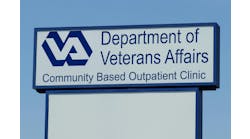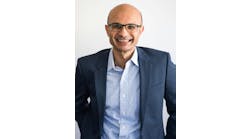What needs to happen for the learning health system concept to break out of the academic medical center bubble? In a recent talk to the Center for Learning Health System Sciences at the University of Minnesota, Paula Lozano, M.D., M.P.H., of Kaiser Permanente Washington’s Health Research Institute, said that the response to COVID offers some potential answers.
Lozano is a senior investigator for the Kaiser Permanente Washington Health Research Institute and director of the Center for Accelerating Care Transformation. She also serves as senior associate medical director for research and translation at the Washington Permanente Medical Group.
Surveying the field of learning health system science (LHSS), she said, “We're training researchers in a field that's rapidly evolving, and the early career scientists in learning health systems are fastening their seatbelts because it's a bumpy ride.”
Lozano said the concept has not reached its full potential at scale. “The fact remains that in academic circles we talk about learning health systems, but there are places in the healthcare industry where they're talking about these concepts, but with much less enthusiasm than the folks in academia,” she said. “Also, when you look at the kinds of systems that have been set up in academic medical centers and integrated systems like the VA and Kaiser Permanente, those are the places where we really have fully developed LHS models or at least models that are going toward being fully developed, but the generalizability to other populations has not really been demonstrated. at scale."
The fact is that it's hard to build an LHS if you don't have resources allocated and you don't have aligned incentives. This has been a challenging environment for creating the partnerships that we need, and for training the scientists.”
She said KP Washington’s experience during the pandemic might offer some keys to successful scalability.
“When you think back to March and April of 2020, this was a time when learning health systems around the country sprang into action. At KP Washington, the topics were around modeling incidents of COVID-19, figuring out how to set up, design and evaluate virtual care, looking at predictive models to figure out who was shut in at home and isolated and needing refills on their medications to avoid exacerbations,” she recalled. “We also had a tidal wave of new information coming out about the disease, possible treatments and diagnosis approaches. As scientists, we had to help our colleagues in healthcare synthesize all of this to know what to do from one day to the next.”
They also tracked utilization to understand how they could respond to this pandemic, including understanding who is best poised to benefit from new medications.
“A lot of us learning health systems researchers felt validated,” Lozano said. Healthcare executives could see how important being a learning health system is when research is embedded and when the situation is urgent. “It is hard to imagine a more urgent situation, and it was all hands on deck,” she added. “It was researchers elbow to elbow with the care delivery leaders. Our priorities were aligned. It was so clarifying that we needed to get through this moment.”
Work at Kaiser Permanente Washington
Lozano posed the question: How can we use this example to create a future where we function as well as we did with that alignment and with that common sense of purpose?
Diving into some learnings from their work within Kaiser Permanente Washington, she described some other features of the partnerships on the COVID-19 situation that allowed them to be successful. “We were fully engaged partners. Our healthcare colleagues invited us to the table,” she said. “We were all in and they wanted us to be there. As researchers, we really wanted to understand what the needs and priorities of the healthcare organization were. We did not have a grant. There were not hypotheses we were testing. We were showing up trying to help and needing to understand what our partners’ problems were so that we could be most helpful.”
From that came clear alignment on the goals and what their roles were as researchers. “We were able to bring that wealth of expertise that we have, from quantitative to qualitative and all the different methodologies and approaches and study designs that we could apply in these varied and challenging settings,” Lozano said. “Accountability, I think, is really key, because there was a huge focus on getting it right. We held ourselves accountable to act on the findings that we came up with. There was this intense focus on the learning health system as a way to do business.”
This led her to observe that researchers need to understand the key business priorities of their partners. “It's our job to bring those rigorous, analytic approaches and we should make sure they're rapid. If the problem needs to be solved in two weeks, doing something that takes six months is not going to be relevant,” Lozano said. “Being flexible about our methods and bringing other colleagues in who have complementary methodologic expertise and finding the knowledge that exists in the health system about how the whole system is experiencing whatever the problem is — COVID or whatever — is an important part of being responsive researchers.”
Lozano spoke about the CATALyST LHS Scholar Program, which brings together four learning health systems with expertise in translational research: Kaiser Permanente Washington, the University of Washington, the Veterans Affairs (VA) Puget Sound Health Care System, and the Washington State University College of Medicine. Its goal is to provide experience and training that produces independent scientists who will become the future leaders of LHS research that improves quality, safety, equity, and patient health.
The projects these CATALyST scholars work on involve service line leaders — people who are delivering direct patient care, whether they're a community resource specialist or a nurse or a pharmacist. “Recognizing these are all members of the team helps us think about how we move the LHSS work forward, and we look for opportunities to gather, to celebrate, to make sure that we're still aligned, to discover together, to engage in inquiry together, and that has been productive in bi-directional learning,” Lozano said. “There's so much expertise that we miss out on if we just hang out with the researchers.”
She also stressed the importance of communicating throughout the whole lifecycle of a project. “We are well served by being intentional about communicating — early on talking with our partners about what is this project? What is it you are asking us to do? What is your question exactly? How do you think we are going to be able to help you? Who's sponsoring this? Which leader cares about this project and is going to stand by it six months from now, 12 months from now when we run into barriers? Let's make sure that we are coming up with outcomes that matter to that leader.”
Another question to ask is: When are we going to have milestones met and what might get in the way? “All of that needs to be done with our care delivery partners,” she said. “We need to remember to continue communicating because sometimes these projects take a long time. Oftentimes, it allows people to get credit for the hard work that they're doing behind the scenes to design a new intervention or to work on an evaluation in partnership. Leaders benefit from having visibility to that.”
Another huge topic for learning health systems is return on investment. “Whenever we're sitting around talking with colleagues around the country about the challenges in learning health systems research, the question so frequently comes up: ‘why don't our leaders understand the ROI? I need to show ROI to continue to get support, but my leaders don't get it. What's going to help my leaders get it?’ Going back to that COVID-19 example, this ROI should not be something we talk about at the end of the project. It's something we talk about at the beginning. And we ask our stakeholders, what do you need and is this work that we're about to embark on the right work? That’s the ROI from square one, right?”
Then, as a project moves forward, is it still on the right track? “If we encountered some barriers or something didn't go the way we planned, are we going to adjust,” she asked, “and if we adjust, are we still aligned with our sponsors?”
As LHS researchers get findings and share them, they have to hold leaders accountable, too, she said. “Remember when we agreed that we would do this together? We have this finding that actually this pilot is not as effective as we thought or it's effective for some people and not for other people. How are you going to use this to inform care? Let's make sense of this together.” Thinking about the ROI longitudinally over time and making sure that you are communicating about it all the way through of makes it a non-issue. “That's been our experience,” she said.
The quintuple aim is described as including health equity; clinician well-being; and the pursuit of better health, improved outcomes, and lower costs. Lovano said learning health system scientists have to make sure they are connecting all the work that they do to one or more of those aims. “We also need to make sure that our partners in care delivery see that connection from the very beginning of a project.”


